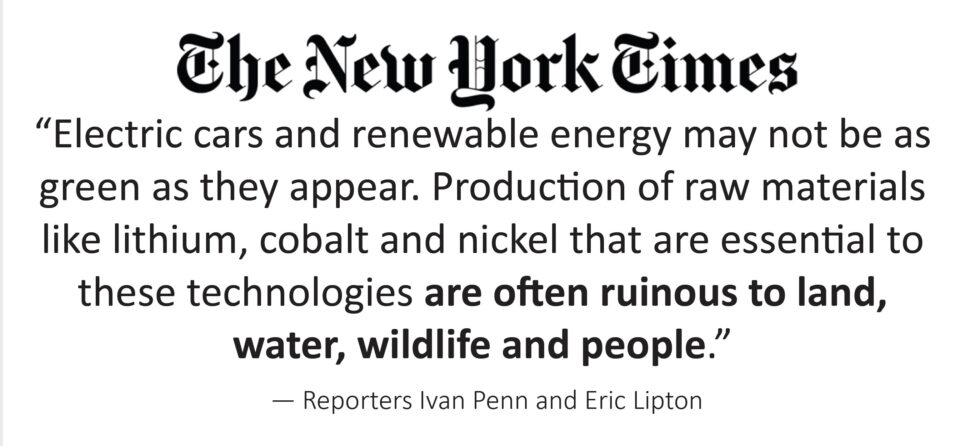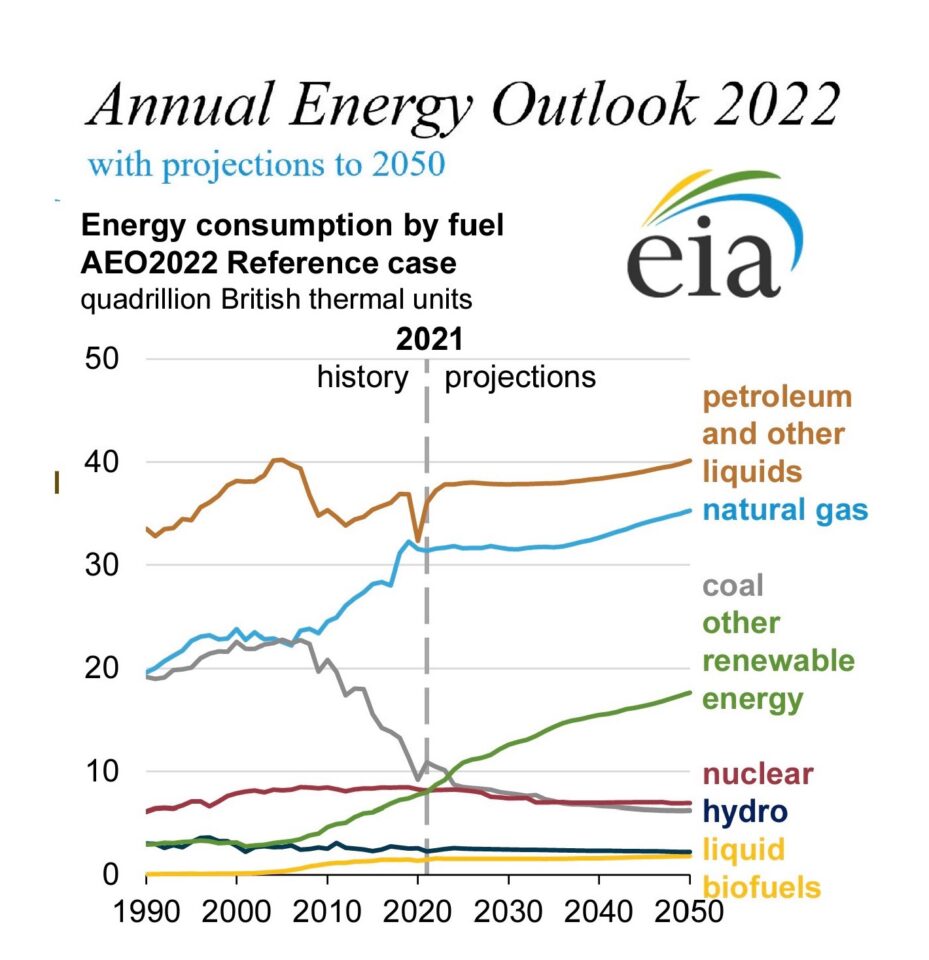The Three Biggest Myths of the ‘Energy Transition’ Narrative
Since passage of the $369 billion climate bill , those who believe we can rely entirely “green” energy have doubled down on claims that these technologies will lower energy costs, make the United States energy independent and eliminate the need for oil altogether. These are the three biggest myths of the “energy transition” narrative.
First and foremost, even the Biden administration’s Department of Energy acknowledges we will need a lot of oil for decades to come.
Why? Because wind and solar replace oil like hats replace shoes. Wind and solar can only generate electricity and provide no alternative to the more than 6,000 modern products made with petroleum, including 70 percent of the typical electric vehicle. Petroleum will also remain essential to the transportation sector far longer than “Keep It In the Ground” activists would like to admit. Not only are electric passenger vehicles far too expensive for most Americans, replacing a fleet of predominantly diesel-fueled trucks that transport more than 70 percent of the goods used in this country would be a monumental task. The same can be said for electrifying the aviation, rail, excavation and maritime sectors. The continued need for oil is one reason why carbon capture – including enhanced oil recovery using carbon dioxide sequestration in oil-producing formations – is such a major component of the climate bill.
Wind and solar also make electricity more expensive for consumers, plain and simple.
When you hear renewable energy proponents claim wind and solar are cheaper than traditional energy, keep in mind they are referring to the cost at the electricity generation source. But what really matters is the cost of electricity to consumers – and wind and solar drive up consumer energy costs because they require nearly 100 percent expensive and redundant backup power from hydrocarbon generation sources or batteries to be reliable. Widespread adoption of electric vehicles will only exacerbate this issue, driving up power demand on a grid that is already overwhelmed.
This explains why electricity costs in “green” Germany have more than doubled since 2000 and were nearly three times higher than the U.S. even before the European energy crisis sent costs into the stratosphere.
Reuters recently reported Germany’s renewable energy mandate “has left Germany with Europe’s highest retail electricity prices and at risk of grid blackouts.” And despite trying to “go green” for 20 years, renewables are able to meet just 15 percent of Germany’s primary energy needs.
Which brings us to the issues of energy independence. Because of the limitations of intermittent wind and solar energy and its refusal to develop its own hydrocarbon resources, the “greenest” country on Earth is the opposite of energy independent. Germany has long been dangerously reliant on Russian oil and natural gas. And in absence of the Russian natural gas since Vladimir Putin invaded Ukraine, Germany has even un-shuttered coal and oil-burning power plants in order to keep the lights on.
And here in the U.S., although sunshine and breezes can obviously be domestically sourced much like our bountiful traditional energy resources, the raw materials for components that collect the energy generated by the sun and wind are currently coming from foreign nations – mostly China. The U.S. has the potential to change the latter, but the same environmental groups that support a rapid energy transition ironically vehemently oppose the domestic mining needed to make it possible. Why? As the New York Times recently reported, “Electric cars and renewable energy may not be as green as they appear. Production of raw materials like lithium, cobalt and nickel that are essential to these technologies are often ruinous to land, water, wildlife and people.”

To be clear, we need all forms of energy, including the alternative variety. But with the various limitations and bottlenecks of wind, solar and electric vehicles noted, it is misleading for “green” energy proponents to insist that we not only won’t need oil and natural gas anymore, but that alternative energy will be cheaper and make us energy independent. Those who have bought into this false narrative will find out soon how misleading it really is.


